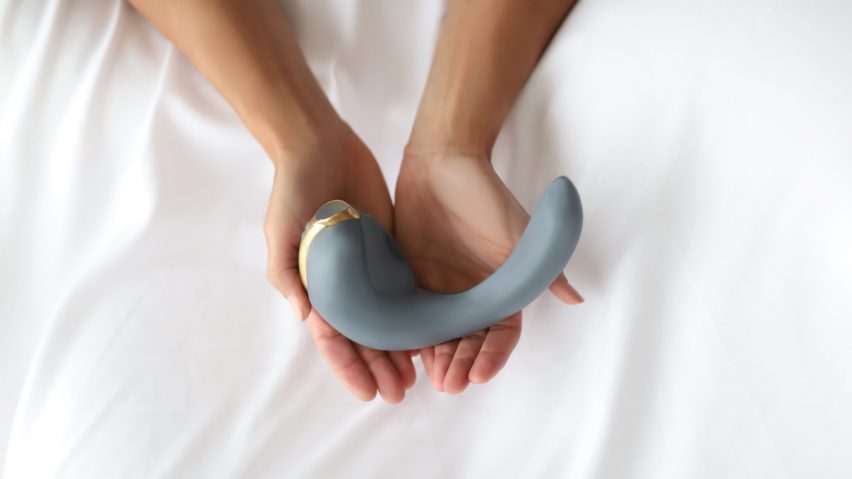Female-led sex toy startup Lora DiCarlo is accusing the Consumer Electronics Show of sexism, after organisers revoked an innovation award from its hands-free robotic massager, then banned the product for being "immoral".
The product under the spotlight is the Osé massager, which claims to be the world's first hands-free product designed for "blended" orgasms – a combined clitoral and g-spot (vaginal) orgasm.
Through the use of advanced micro-robotic technology, the massager imitates the movements and sensations of a human partner, in a bid to avoid "buzzing, desensitising" vibrations.
Organisers initially praised the sex toy
According to Lora DiCarlo, Osé was granted a CES 2019 Innovation Award in robotics by a panel of independent expert judges for its cutting-edge technology.
The honour was short-lived however. A month later the almost entirely female team of engineers were informed that the administrators at CES and the Consumer Technology Association (CTA) – the show's owner and producer – were revoking the award.
Lora DiCarlo was also told that it would not be allowed to exhibit its biomimicry-inspired massager at CES 2019, as the company detailed in a statement written in response.
When this decision was questioned by Lora DiCarlo, CTA replied that entries "deemed by CTA in their sole discretion to be immoral, obscene, indecent, profane or not in keeping with CTA's image will be disqualified".
Despite having allegedly passed the vetting process, CTA officials said in a statement that the product "should not have been accepted for the Innovation Awards Program" because it "does not fit into any of our existing product categories".
CES accused of sexism and gender bias
According to Lora Haddock, founder of Lora DiCarlo, this is just one example of long-running gender bias and sexism at CES.
She points out that "a literal sex doll for men launched on the floor at CES in 2018 and a VR porn company exhibits there every year, allowing men to watch pornography in public as consumers walk by".
"Clearly CTA has no issue allowing explicit male sexuality and pleasure to be ostentatiously on display," she said. "You cannot pretend to be unbiased if you allow a sex robot for men but not a vagina-focused robotic massager for blended orgasm."
Eight robotics patents are pending on the product
Although the Osé massager was designed in partnership with the high-ranking robotics engineering laboratory at Oregon State University, it was ruled ineligible for the robotics and drone category by CTA president Gary Shapiro and executive vice president Karen Chupka.
Haddock described this as "an even more insulting and frankly ridiculous assertion" by the duo, subsequently stating that Osé is the subject of eight pending patents for robotics, biomimicry, and engineering feats.
"Putting aside for a moment the implication that women's sexual wellness products are somehow immoral or obscene, if we didn't fit their policy, how in the world did our application even get past the first round of vetting by CTA staff, let alone receive high marks across the board from their expert judges?" questioned Haddock.
CES promised to "do better" after all-male speaker line-up in 2018
The news comes a year after CES admitted that the technology sector "can and must do better" to encourage diversity, following criticism of the event's all-male keynote speaker line-up.
In a letter dated 5 January 2018, the event's executives said they were "committed to changing the status quo" and promised to increase the number of women speakers next year.
"As we plan 2019, we will redouble our efforts to expand women's voices throughout the conference and as featured speakers," wrote Shapiro and Chupka.
This year the keynote speaker list is more balanced, with 11 men and eight women.
For Haddock, this case relates to a larger issue regarding sexism within the tech industry as a whole.
"We believe that society needs to drop the taboo around sex and sexuality," she said. "It's a part of life and health that absolutely should be part of mainstream discourse."

